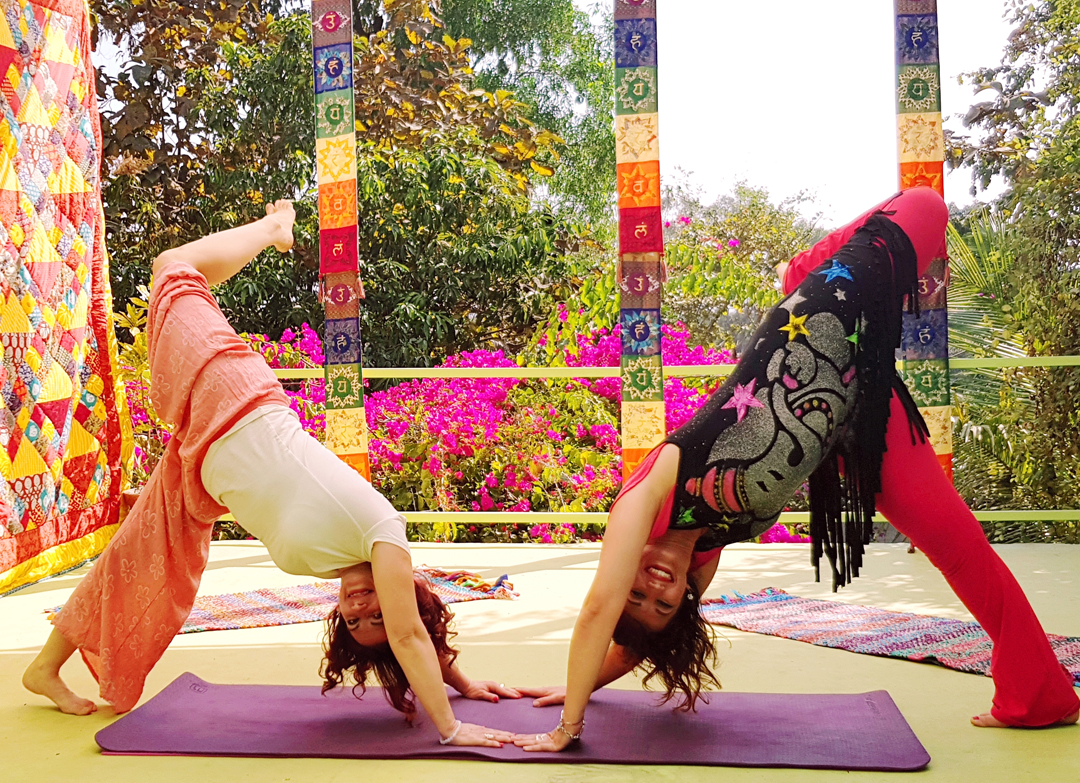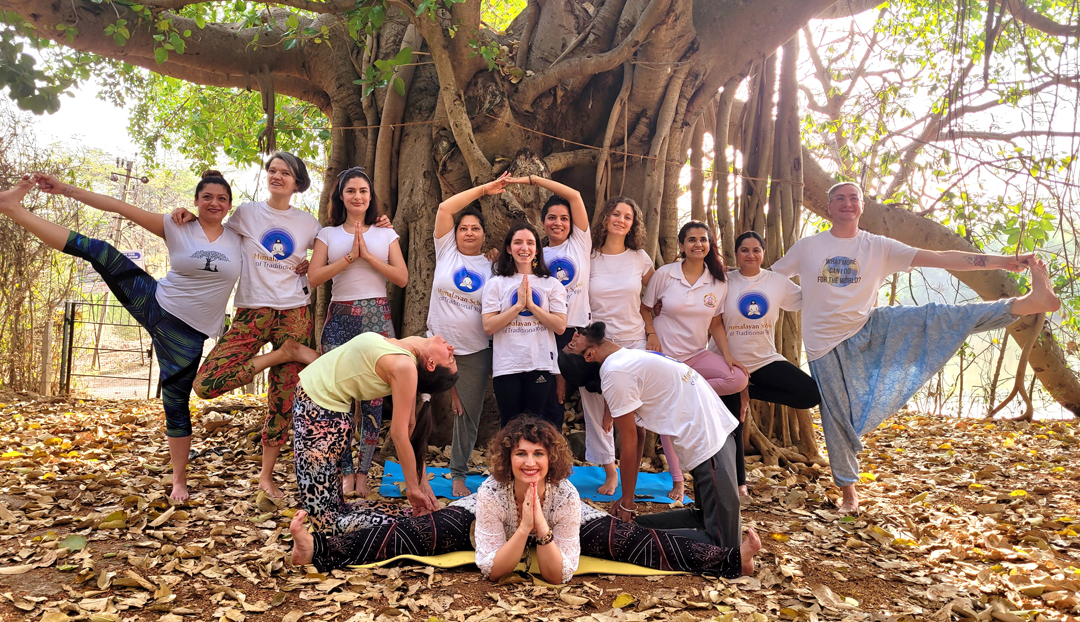
Namita Nayyar:
With increasing cases of stress & depression among individuals, how can one undergo unique deep inner processes in order to tap into the deepest of pain and rise above it through yoga practice?
Devi Mohan:
It is important to point out that through regular yoga practice our automatic stress reaction pattern gets changed and actual re-wiring takes place in the brain. Our consistent effort during yoga practice in remaining calm and focused on the breath instead of the discomfort is what creates the greatest neurobiological effect of Yoga! The secret to why Yoga works is in its challenging postures, not in the relaxing ones. Training ourselves to remain calm during challenging positions and then diving deep into a relaxed state after such positions is what really makes the difference. Through an intentional sequence of exertion and conscious deep relaxation, as well as through different forms of discomfort in Yoga (e.g. twists, flexing and stretching of the muscles, inability to breathe freely in challenging positions, etc.) followed by blissful relaxation, what actually happens within amounts to the retraining of the automatic stress response in the nervous system so that the brain stops with prolonged fight or flight response to stressful situations. In other words, we are no longer held in the clutches of our limbic brain.
In other words, our brain does not discriminate between a challenging asana, running away from a barking dog, or the pressure of passing an exam or finishing an impossible report within a tight deadline. The physiological response will be the same and the brain regions involved will be the same. The muscles will get tense, the breathing rate will increase, the heart rate will increase, negative or anxious thoughts will come, and levels of cortisol and other stress hormones will increase.

However, if yogic techniques of focusing on the breath and not the discomfort, activation of the witnessing aspect of the mind (sakshi bhaav), a conscious relaxation of facial muscles, use of Ujjayi breath to slow down the breathing, a complete focus on the here and now, affirmation of the lightness of the body, etc. are used, with a certain period of training and reinforcement of this response to what our brain identifies as stress during Yoga practice, one is empowered to apply the same techniques in everyday life during all stressful situations and circumstances.
It is fascinating that the process indeed works both ways and that through breath and awareness, we can work on our mind and body. We just need to understand that the brain’s habit of automatically invoking the stress response is nothing but a habit reinforced through time, and like all our habits, this one too can be changed – if one assumes direct responsibility and commits to a regular yogic practice.
Namita Nayyar:
According to you what are the key essentials of practicing yoga?
Devi Mohan:
Yoga is not just a practice, but a way of life. Aside from asanas and pranayama, it includes a sattvic diet, positive thinking, spiritual study, healthy relationships, silent meditation, and selfless service. Chanting of ancient mantras in the Sanskrit language which has a vertical vibration and profound effect on the body-mind system is of great help.
In my view, yoga needs to become a lifestyle that brings one into balance, lightness, love, and gratitude. In the present day of Kali Yuga, most people are leading a ‘bhogi’ life. A bhogi chases happiness in possessions, roles, status, and all outer achievements that gratify his/her sense of ‘I’ and mine. He (or she) engages himself endlessly in competing for space, position, and material resources. His actions gradually entangle him in a web of greed, ego, and attachment. A bhogi ultimately becomes a ‘rogi’ – physically, mentally, morally, and spiritually unhealthy. Whether we want to be a Yogi, Bhogi, or Rogi is a matter of choice.

Health is not just the absence of disease but a state of wellness in which one enjoys physical, mental, social, and spiritual health. Most diseases today are psychosomatic, caused by negative emotions, overload of stimuli and information through electronic media, as well as the overall speed of life. Negative impressions stored in the system adversely influence any individual’s attitude, outlook, dietary habits, relationships, and behavior. As a consequence, norms of physical and mental health are violated. When the body’s tolerance limit is crossed by repeated violations, disease sets in.
A yogic lifestyle doesn’t mean renunciation or shedding family responsibilities. A yogi is empowered to maintain his mental equilibrium even in adverse situations. He is naturally free from addictions and unhealthy habits. A yogi celebrates the spirit of love through a very deep and authentic spiritual connection with others and Mother Nature.
All in all, Yoga sets a strong, solid Satvvic base for our full spiritual blossoming, which, if in line with our individual karmic agenda, leads us to the ultimate unity with the Absolute while in the body. Aside from numerous benefits at the physical, emotional, and mental levels, the consistent practice of Yoga leads to self-knowledge, i.e. knowledge of the truth of our being, considering one’s true self as an immortal soul having an eternal relationship with the Supreme Soul. With purity of intention and diligence in practice, through Yoga, the ancient promise of Unity is sure to get fulfilled.
Disclaimer
The Content is not intended to be a substitute for professional medical advice, diagnosis, or treatment. Always seek the advice of your physician or other qualified health provider with any questions you may have regarding a medical condition.